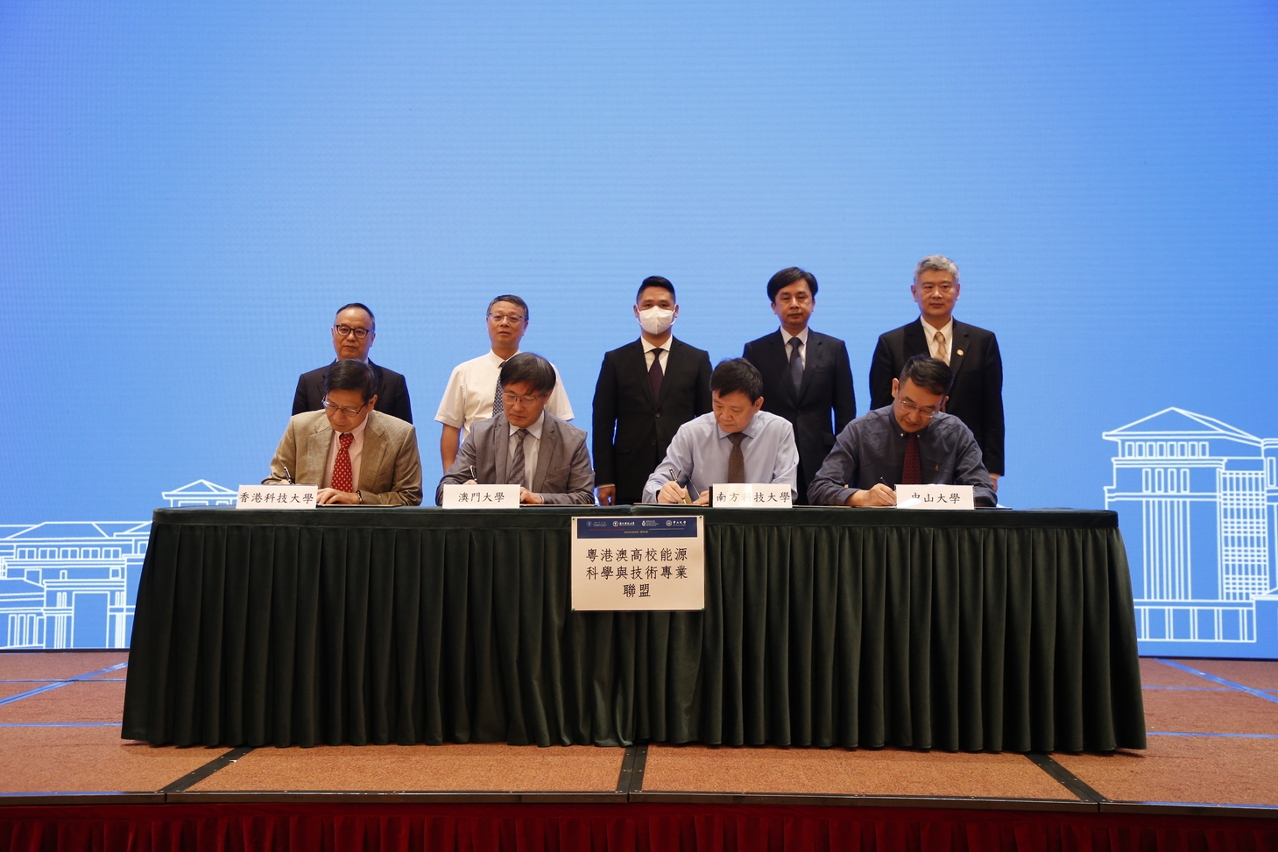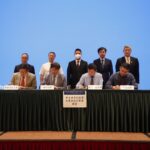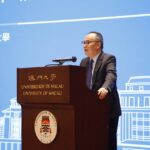 UM, the Southern University of Science and Technology, the Hong Kong University of Science and Technology, and Sun Yat-sen University sign an agreement
UM, the Southern University of Science and Technology, the Hong Kong University of Science and Technology, and Sun Yat-sen University sign an agreement
To respond to the development needs of China, as well as regions such as Guangdong, Hong Kong, and Macao in energy-related professions, and to help the Guangdong-Hong Kong-Macao Greater Bay Area become an international technology and innovation centre and an international education demonstration zone, the University of Macau (UM), the Southern University of Science and Technology, the Hong Kong University of Science and Technology, and Sun Yat-sen University jointly initiated the establishment of the Guangdong-Hong Kong-Macao University Energy Science and Technology Alliance under the framework of the Guangdong-Hong Kong-Macao University Alliance. The signing ceremony and the Carbon Neutral Energy Forum for Universities in Guangdong, Hong Kong, and Macao were held today (29 May) at UM, marking the official establishment of the alliance.
At the signing ceremony of the alliance, Tang Zikang, director of the Institute of Applied Physics and Materials Engineering at UM; Zhao Tianshou, member of the Chinese Academy of Sciences, director of the Energy Institute for Carbon Neutrality at the Southern University of Science and Technology; Gao Furong, director of the Center for Polymer Processing and Systems at the Hong Kong University of Science and Technology; and Yao Xiangdong, dean of the School of Advanced Energy at Sun Yat-sen University, signed an agreement on the establishment of the alliance. The signing ceremony was witnessed by Shi Shuzheng, deputy director of the Education and Youth Affairs Department of the Liaison Office of the Central People’s Government in the Macao SAR; Wong Kin Mou, acting deputy director of the Education and Youth Development Bureau of Macao; Yonghua Song, rector of UM; Jin Li, vice president of the Southern University of Science and Technology; and Guo Liejin, member of the Chinese Academy of Sciences, professor at Xi’an Jiaotong University, and director of the engineering department at Sun Yat-sen University.
In his speech, Song said that UM is committed to the national carbon peaking and carbon neutrality goals, and has a systematic layout and has made sustained effort in academic research and talent development in the field of energy science and technology. At the same time, the university has attached great importance to cooperation with the Southern University of Science and Technology, the Hong Kong University of Science and Technology, and Sun Yat-sen University. He expressed hope that, with the signing of the agreement, the alliance will become an important platform for the exchange of ideas and the growth of top talent in energy science and technology in the Greater Bay Area, as well as a cradle of cutting-edge energy technology research and development and research results transfer in the region, so as to drive the innovative development of the energy industry in the Greater Bay Area, and even the whole country, and to help realise the national carbon peaking and carbon neutrality goals.
The Carbon Neutral Energy Forum for Universities in Guangdong, Hong Kong, and Macao was moderated by Tang Zikang. The forum focused on areas such as energy science and technology, and carbon emissions reduction. In the forum, Guo Liejin, Zhao Tianshou, Gao Furong, and other experts and scholars from higher education institutions gave keynote speeches and led in-depth discussions. Guo gave a speech on the topic of ‘Carbon Peaking and Carbon Neutrality Goals – Development Direction of Advanced Coal Conversion Technology and Industry’, exploring the importance of the clean use of traditional energy sources represented by coal to improve energy efficiency and reduce carbon emissions. He also shared his views on the application of coal supercritical water gasification cogeneration and other related technologies, as well as the future development directions of the coal industry and suggestions for countermeasures. Focusing on the bottleneck of large-scale energy storage in renewable energy utilization, Zhao gave a keynote speech on ‘Storing Solar Energy with E-fuels’ to discuss efficient, safe, scalable renewable liquid fuel storage technologies and emphasise the importance of energy storage systems in the application of new energy power systems. Gao, with the topic of ‘Introduction of Battery Management System Frontier Technologies’, shared intelligent battery management technologies, such as battery charge status and health status estimation, and battery data compression and reconstruction.
During the forum, a number of researchers from UM, the Southern University of Science and Technology, the Hong Kong University of Science and Technology, and Sun Yat-sen University also gave presentations and shared their research achievements. In addition, there were question-and-answer sessions and discussion sessions, where many participants seized the opportunity to ask questions and have in-depth discussions with the keynote speakers.




